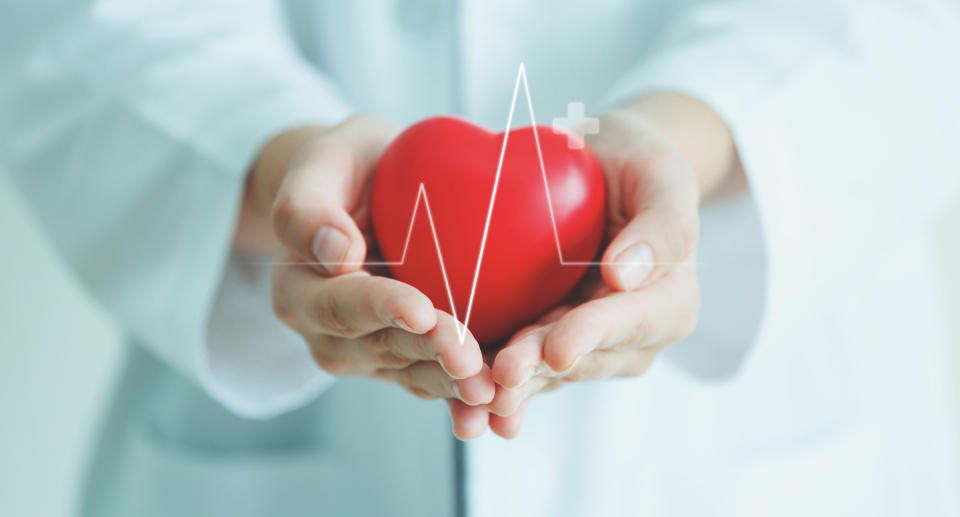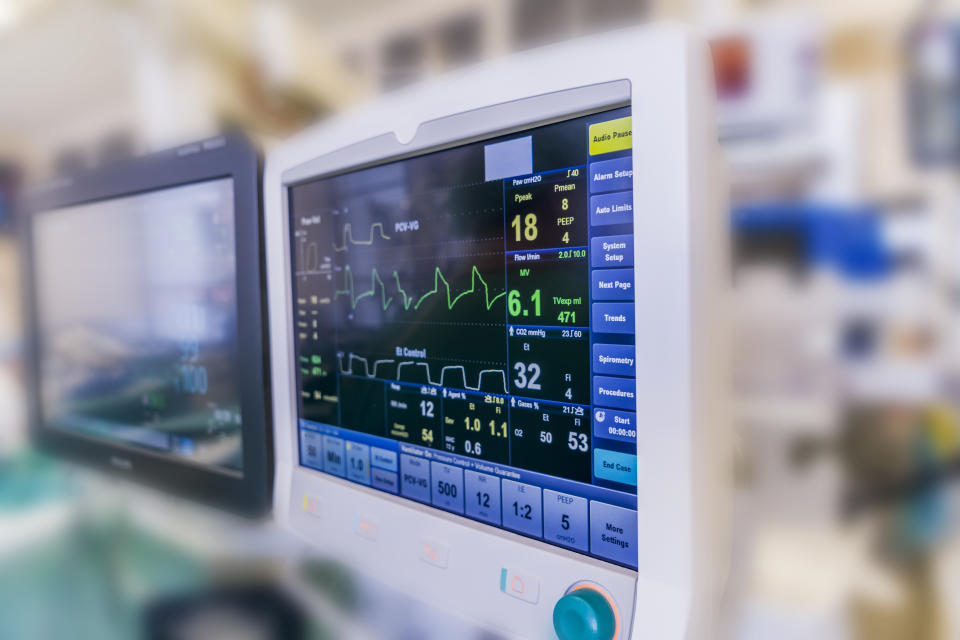'How is this happening?': Mom speaks out after suffering heart attack at 29
Looking for more of the best deals, latest celebrity news and hottest trends? Sign up for Yahoo Lifestyle Canada’s daily newsletter, coming soon!

Kristen Bowlds was only 29 when she suffered her first heart attack. It followed the birth of her second child.
“I just felt tightness in my chest, a little fatigue and just nauseous,” Bowlds said in an interview with The Today Show.
Doctors immediately performed an EKG, which revealed an irregular heartbeat known as arterial fibrillation (Afib).
“They just said ‘Oh, that’s because you’re recovering from a C-section and you’re OK.’”
Bowlds was then sent home with her husband and newborn daughter, ready to begin life as a family of four. However, the pain continued. Six days later, after some encouragement from her husband, Bowlds returned to the hospital where she was shocked to discover she was experiencing a heart attack.
Doctors immediately transferred her to Abbot Northwestern Hospital in Minneapolis, Minn., where she was diagnosed with Spontaneous Coronary Artery Dissection (SCAD), a condition in which a tear in an artery wall occurs in the heart, slowing or blocking blood flow. Reduced or restricted blood flow can cause heart attack and sudden death.
“I’m like, ‘I have never heard of this before?’” Bowlds said. “I am 29 years old. I was healthy. I’ve never had any family history of heart disease...so I reacted like, ‘How is this happening?’”
ALSO SEE: 'I started feeling my mortality': Singer says she got mercury poisoning from a pescatarian diet
Although the exact cause of SCAD is unknown, nearly 90 per cent of all SCAD cases happen in women between the ages of 30 and 60. Genetics, hormone changes, multiple pregnancies, cocaine use, systemic inflammations such as Chron’s disease have been linked as potential causes of artery wall weakening, which can lead to SCAD.

According to the Heart and Stroke Foundation of Canada, there are several factors that increase the risk of SCAD, including fibromuscular dysplasia, connective tissue disorders, severe emotional stress, cocaine use, intense physical exertion and hormone therapy with estrogen and progesterone.
While many people know that shortness of breath, chest pain and left arm pain often indicate a heart attack, there are plenty of other warning signs and symptoms to look out for. Pressure or tightness in the neck, jaw or back, nausea or heartburn, abdominal pain, fatigue, sweating and light headedness are common signs of heart attack that people may not know about.
ALSO SEE: 'This is a normal occurrence': Blogger shares photo of little-known pregnancy side effect
In total, Bowlds had seven heart attacks before the tears in her arteries were able to heal. She became involved in raising awareness for SCAD and in 2018, co-chaired her first 5K SCADaddle for Research race. On the day of the race, Bowlds felt that something was off.

“I kept thinking to myself that there was no way SCAD was happening again,” Bowlds told the Minneapolis Heart Foundation.
Bowlds collapsed at the event and was taken by ambulance to the nearest hospital, where it was confirmed she was experiencing another heart attack. After a week of consistent chest pain, her physician Dr. Scott Sharkey, senior consulting cardiologist at the Minneapolis Heart Institute, ordered an emergency triple bypass to help restore blood flow to her heart.
Doctors attributed her tears to stress, and, after undergoing major surgery, Bowlds was forced to stop working in an effort to prevent future heart attacks.
“It was a life-changing experience and a life-changing event. I had to make a lot of changes in my life. My goals and priorities are different now,” she said. “But I have two beautiful kids at home who keep me going.”
Let us know what you think by commenting below and tweeting @YahooStyleCA! Follow us on Twitter and Instagram and sign up for our newsletter, coming soon.



